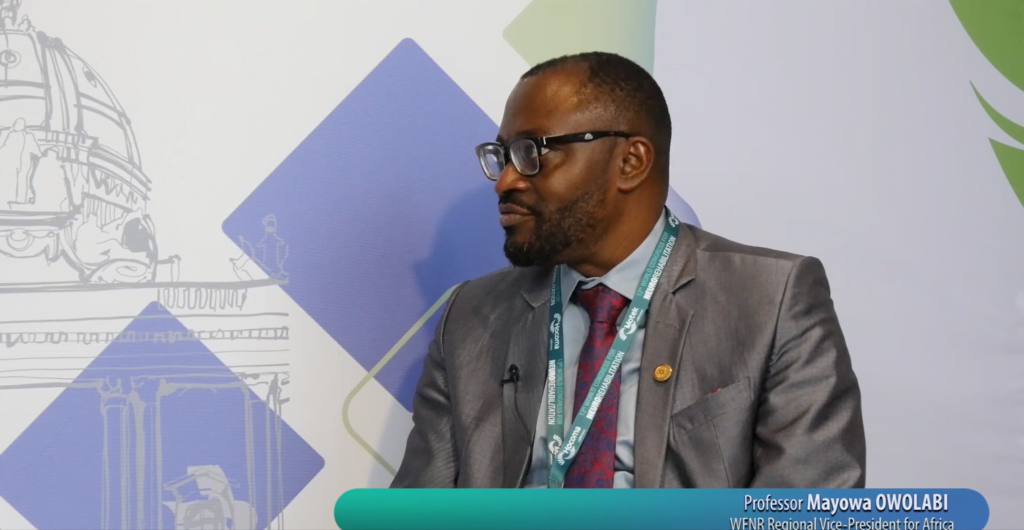Interview with Prof. Mayowa Owolabi – World Congress for Neurorehabilitation (WCNR) Vienna 2022

Interviewee: Professor Mayowa Owolabi, WFNR Regional Vice-President for Africa
Interviewer: Stefana-Andrada Dorban
Professor Owolabi has made groundbreaking strides in the community-based genomic epidemiology of stroke in Africa shedding light on the genetic factors contributing to stroke risk in African populations and helping to identify tailored prevention and treatment strategies.
As a key coordinator of the pre-congress workshops, alongside Professor Thomas Platz, Professor Mayowa Owolabi played a pivotal role in disseminating information and building essential skills for the participants. One of the highlights of the WCNR was the plenary sessions that delved into innovations with the potential to transform the lives of individuals living with neurological disabilities across the globe. Remarkably, 2022 witnessed significant milestones in neurology and neurorehabilitation, with the launch of the WHO Intersectoral Global Action Plan against Epilepsy and Other Neurological Conditions, and other noteworthy initiatives such as The Brain Health Initiative.
Professor Owolabi also reflected on previous congress experiences and expressed deep appreciation for the World Federation for NeuroRehabilitation (WFNR). He stressed the importance of ensuring a high quality of life for patients, aiming not only to add years to their life but also to add life to their years. Interdisciplinary care emerged as a significant challenge discussed during the congress, with Prof. Mayowa Owolabi emphasizing the need for a multidisciplinary approach to neurorehabilitation based on team collaboration to ensure holistic and humanistic treatment for patients.
In his discourse, Professor Owolabi shed light on crucial factors for stroke physicians, particularly the continuum of care and patient reintegration into society. Ensuring seamless and continuous care throughout the patient’s journey is vital for favorable outcomes. Additionally, evidence-based stroke guidelines at the international level were addressed, with emphasis on the need for advocacy to support new studies and pragmatic multi-center trials.









